“So I’m going to lower the tone a bit,” Bella began as she introduced her work ‘Sneeze’. This poem highlighted Bella’s undeniable talent as a performer as she steadily introduced the audience to a new view on sneezing. “It is my mother’s belief that the way in which a person performs their nasal expunctions reveals how said person has an orgasm.”
Quickly bringing the audience to laughter, Bella kept true on her promise of lowering the tone in the best possible way. Engaging and hilarious from start to finish, ‘Sneeze’ perhaps permanently changed the audience’s perception of sneezing. Self-aware of this, Bella made sure to highlight any possible scenario of seeing someone sneeze, and then thinking about them afterwards at the point of climax.
“The reason we pick these poets is the variety, the fact that no two poets were the same. When you have poets that are doing different things every time it does have a really positive effect and we really got that feedback during the interval and at the end,” explained Pajak.
House Poet John Fennelly spoke after the interval, reading a poem by Laurence Binyon, most famous for his work ‘Ode of Remembrance’. Joined by violinist Dave King on stage, there was an illuminating contrast between words and music as Fennelly read ‘The Burning of the Leaves’. The haunting performance was punctuated beautifully by King’s violin, creating an ominous and suspenseful atmosphere as the words rang out.
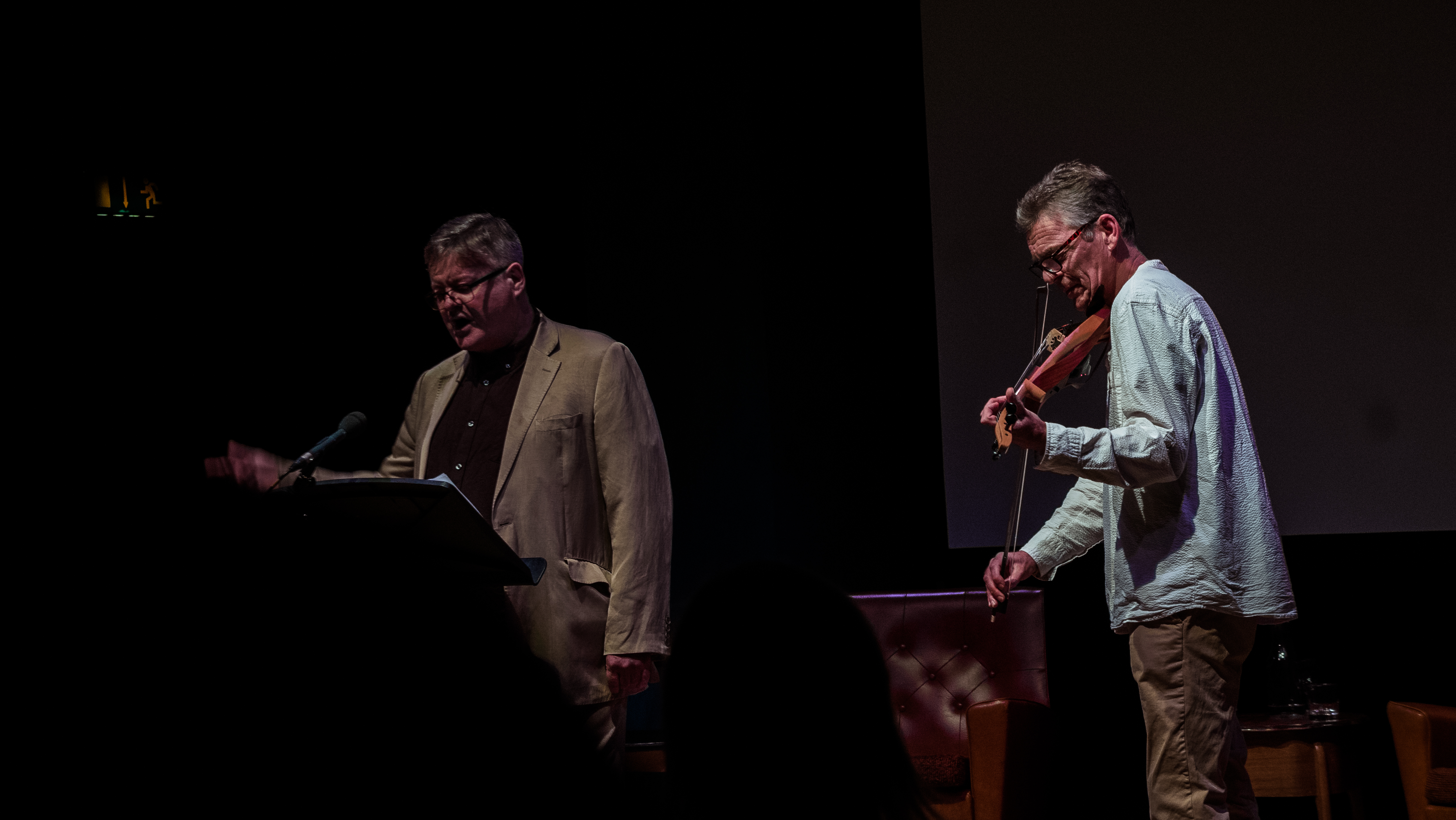
“It’s no surprise, to us anyway, how much people reach out to poetry at times of deep emotion, or political change and times of remembrance,” said Fennelly. He poignantly connected the thematics of the evening, occurring a day after the centennial anniversary of WW1 armistice.
“Empty nest syndrome, when our children leave home and set out on their own lives. We tend to be very stiff upper lipped about it. When in fact it is a very difficult experience that might get quieter but does continue,” Duffy described as she took to the stage once again.
Another impactful poem from Sincerity, Duffy’s performance of ‘Empty Nest’ kept the room in stunned silence as she illustrated the gaping hole left behind when a child leaves home. Talking through mundane day to day tasks which now hold less value behind them, the theme of emotional loss was evident and continually heightened as the poem progressed.
This theme continued as Duffy’s performance was followed by a short film based on the writings of special guest Owen Lowery. Former British Judo champion Lowery suffered a spinal injury while competing and is now a tetraplegic. His poetry has appeared in Stand, PN Review, The Independent, The Times and The Guardian. He has two major collections published, Otherwise Unchanged (2012) and Rego Retold (2015).
Slow, heavy breathing accompanied the opening frames of the film, setting a restful pace as the audience was presented with numerous sequences of abstract imagery. The steady movement of the ocean, of waves. Butterflies and fractal collages, intercut with documentary-style moments of Lowery going about his day transfixed the audience into a near meditative state. His words struck sharply, with each syllable purposefully impactful.

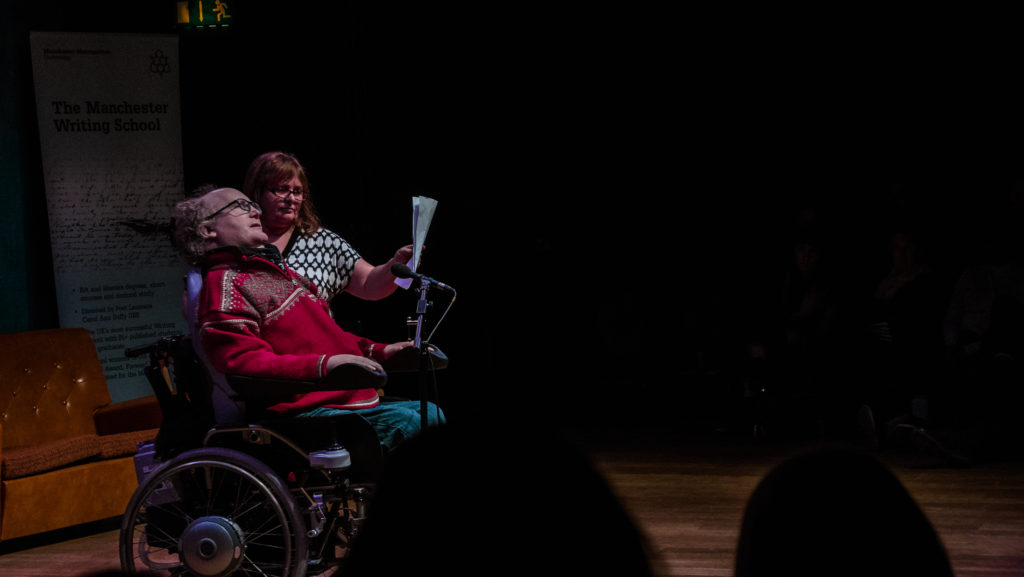
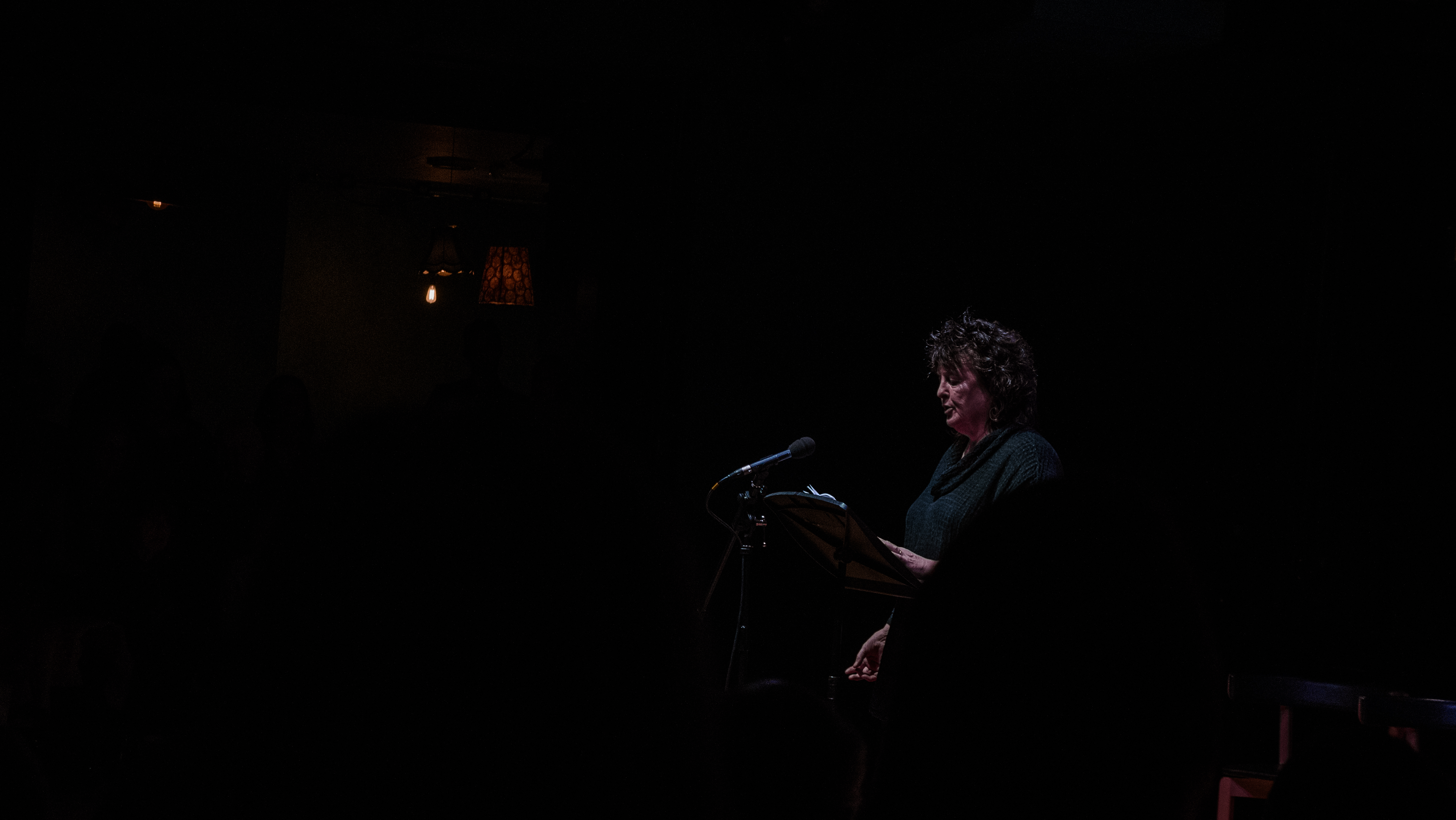
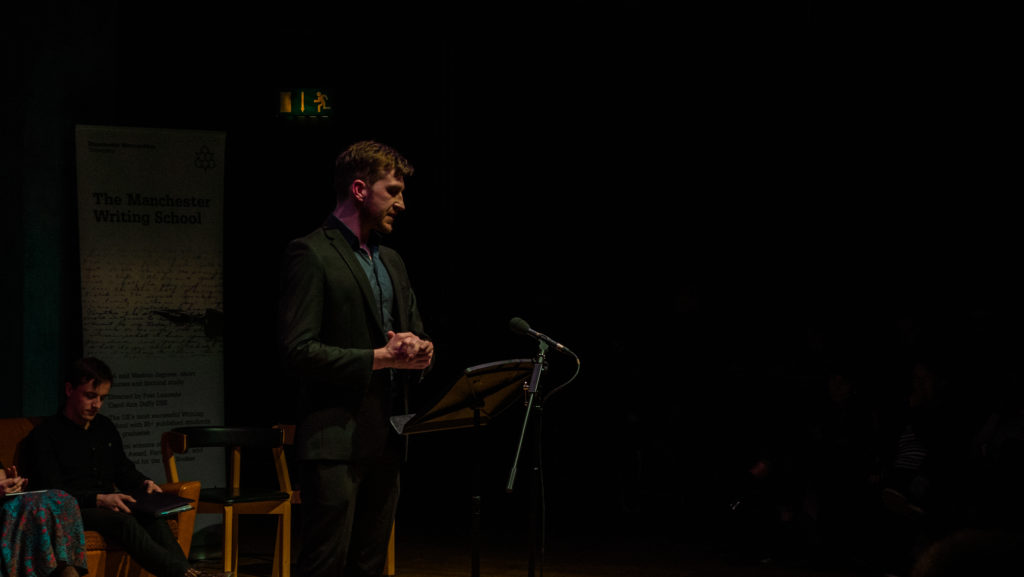
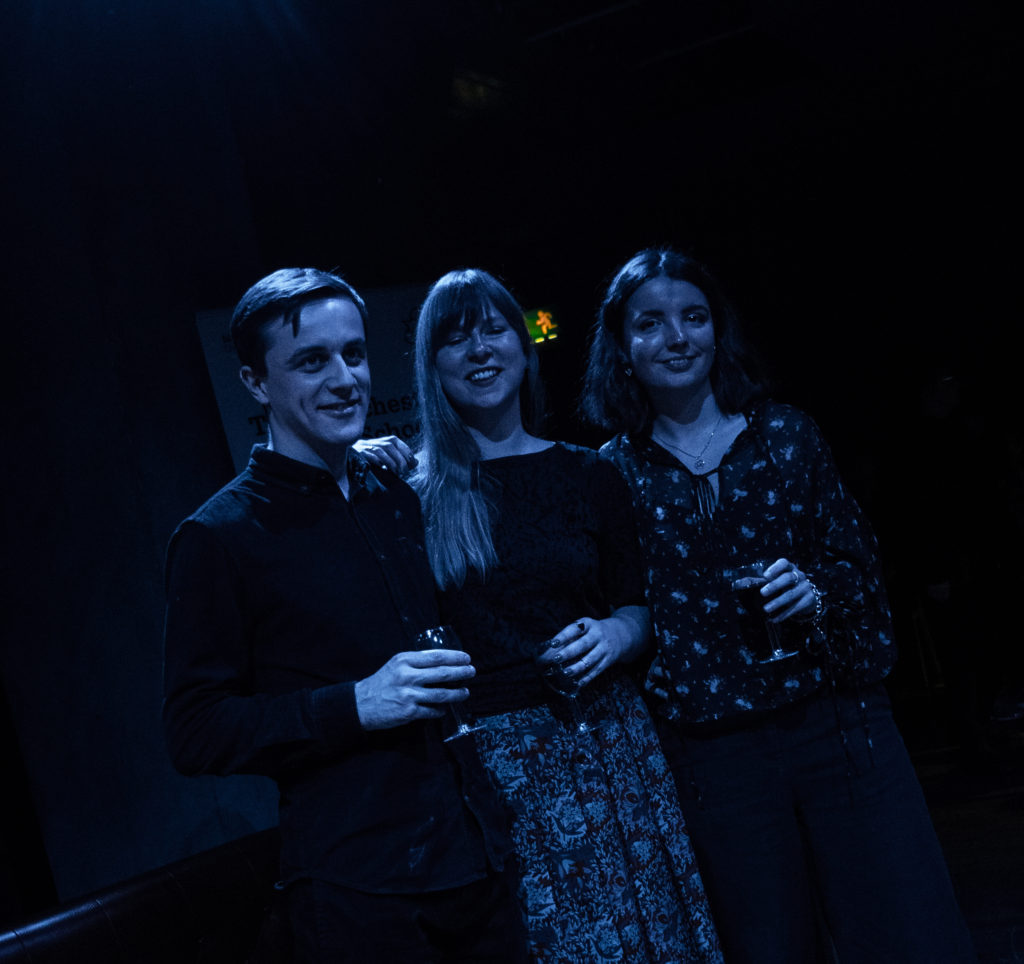
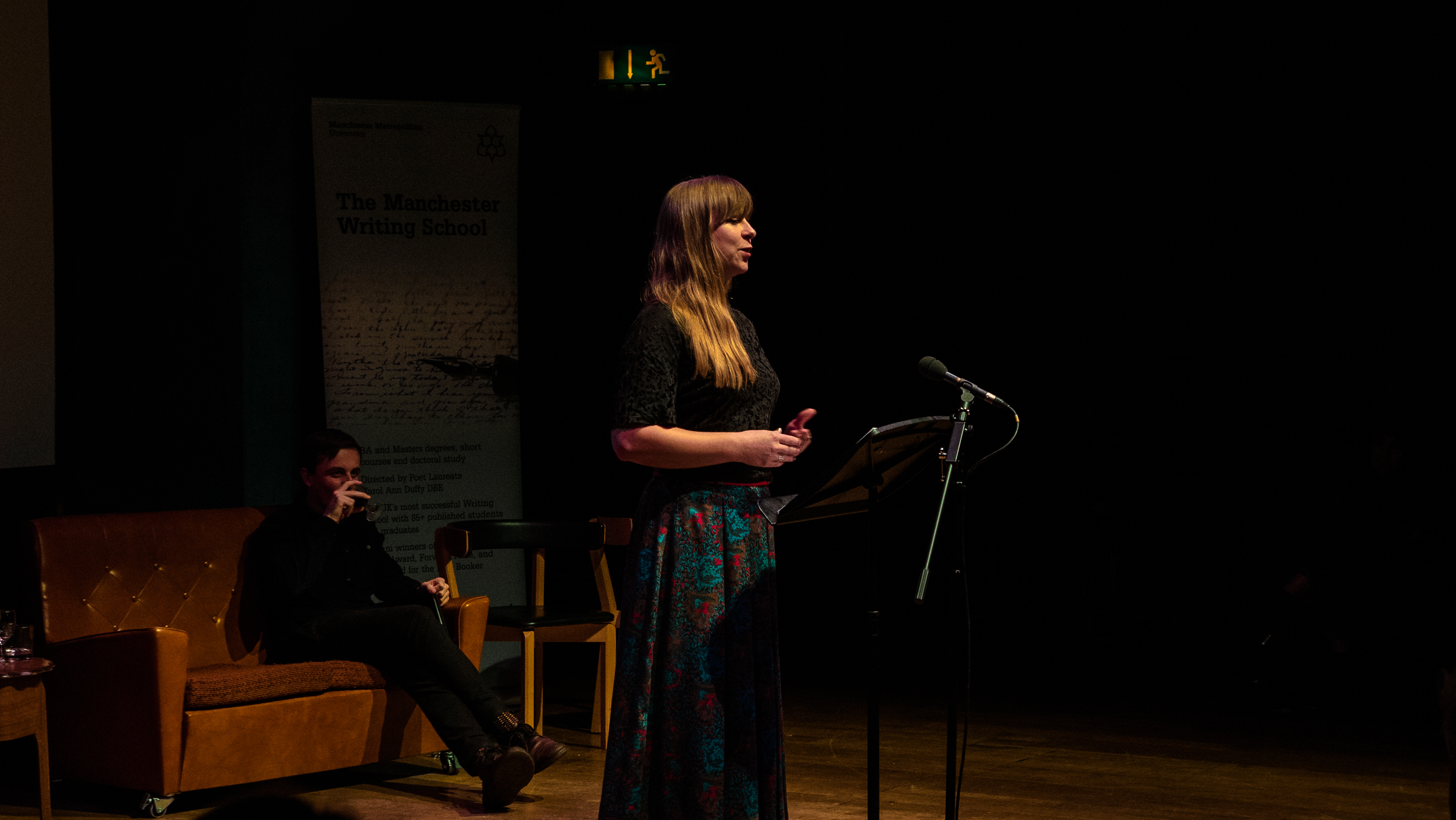





Leave a reply